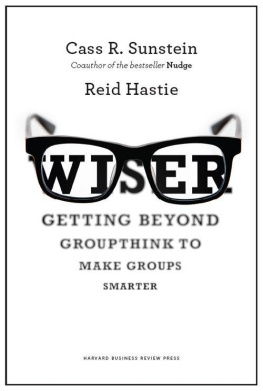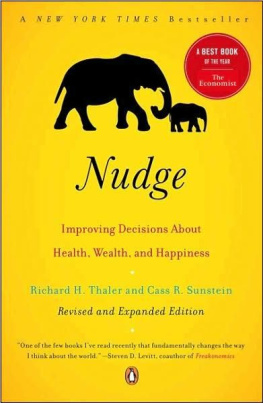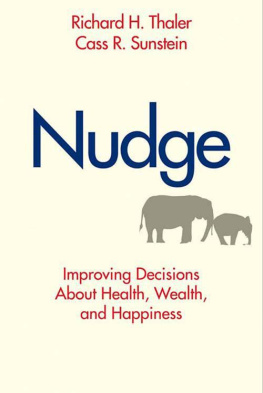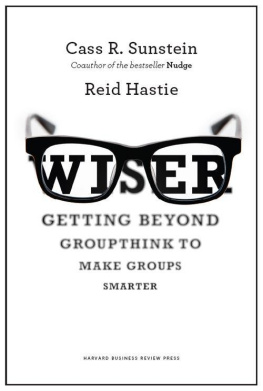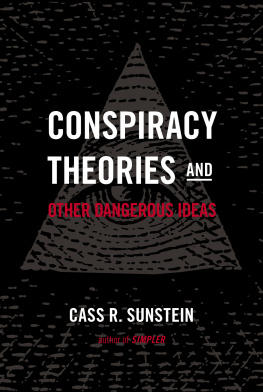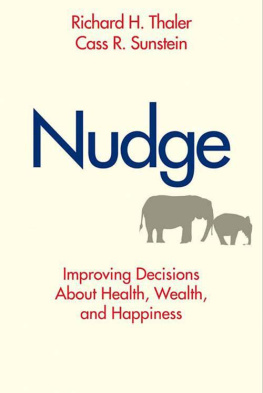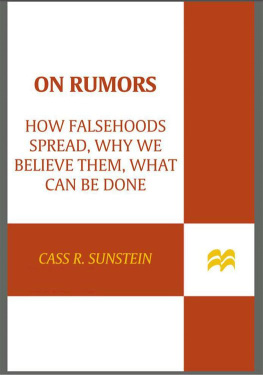Sunstein Cass R - Wiser : getting beyond groupthink to make groups smarter
Here you can read online Sunstein Cass R - Wiser : getting beyond groupthink to make groups smarter full text of the book (entire story) in english for free. Download pdf and epub, get meaning, cover and reviews about this ebook. year: 2015, publisher: Harvard Business Review Press, genre: Politics. Description of the work, (preface) as well as reviews are available. Best literature library LitArk.com created for fans of good reading and offers a wide selection of genres:
Romance novel
Science fiction
Adventure
Detective
Science
History
Home and family
Prose
Art
Politics
Computer
Non-fiction
Religion
Business
Children
Humor
Choose a favorite category and find really read worthwhile books. Enjoy immersion in the world of imagination, feel the emotions of the characters or learn something new for yourself, make an fascinating discovery.
- Book:Wiser : getting beyond groupthink to make groups smarter
- Author:
- Publisher:Harvard Business Review Press
- Genre:
- Year:2015
- Rating:5 / 5
- Favourites:Add to favourites
- Your mark:
Wiser : getting beyond groupthink to make groups smarter: summary, description and annotation
We offer to read an annotation, description, summary or preface (depends on what the author of the book "Wiser : getting beyond groupthink to make groups smarter" wrote himself). If you haven't found the necessary information about the book — write in the comments, we will try to find it.
Why are group decisions so hard?
Since the beginning of human history, people have made decisions in groupsfirst in families and villages, and now as part of companies, governments, school boards, religious organizations, or any one of countless other groups. And having more than one person to help decide is good because the group benefits from the collective knowledge of all of its members, and this results in better decisions. Right?
Back to reality. Weve all been involved in group decisionsand theyre hard. And they often turn out badly. Why? Many blame bad decisions on groupthink without a clear idea of what that term really means.
Now, Nudge coauthor Cass Sunstein and leading decision-making scholar Reid Hastie shed light on the specifics of why and how group decisions go wrongand offer tactics and lessons to help leaders avoid the pitfalls and reach better outcomes. In the first part of the book, they explain in clear and fascinating detail the distinct problems groups run into:
- They often amplify, rather than correct, individual errors in judgment
- They fall victim to cascade effects, as members follow what others say or do
- They become polarized, adopting more extreme positions than the ones they began with
- They emphasize what everybody knows instead of focusing on critical information that only a few people know
In the second part of the book, the authors turn to straightforward methods and advice for making groups smarter. These approaches include silencing the leader so that the views of other group members can surface, rethinking rewards and incentives to encourage people to reveal their own knowledge, thoughtfully assigning roles that are aligned with peoples unique strengths, and more.
With examples from a broad range of organizationsfrom Google to the CIAand written in an engaging and witty style, Wiser will not only enlighten you; it will help your team and your organization make better decisionsdecisions that lead to greater success.
Sunstein Cass R: author's other books
Who wrote Wiser : getting beyond groupthink to make groups smarter? Find out the surname, the name of the author of the book and a list of all author's works by series.

